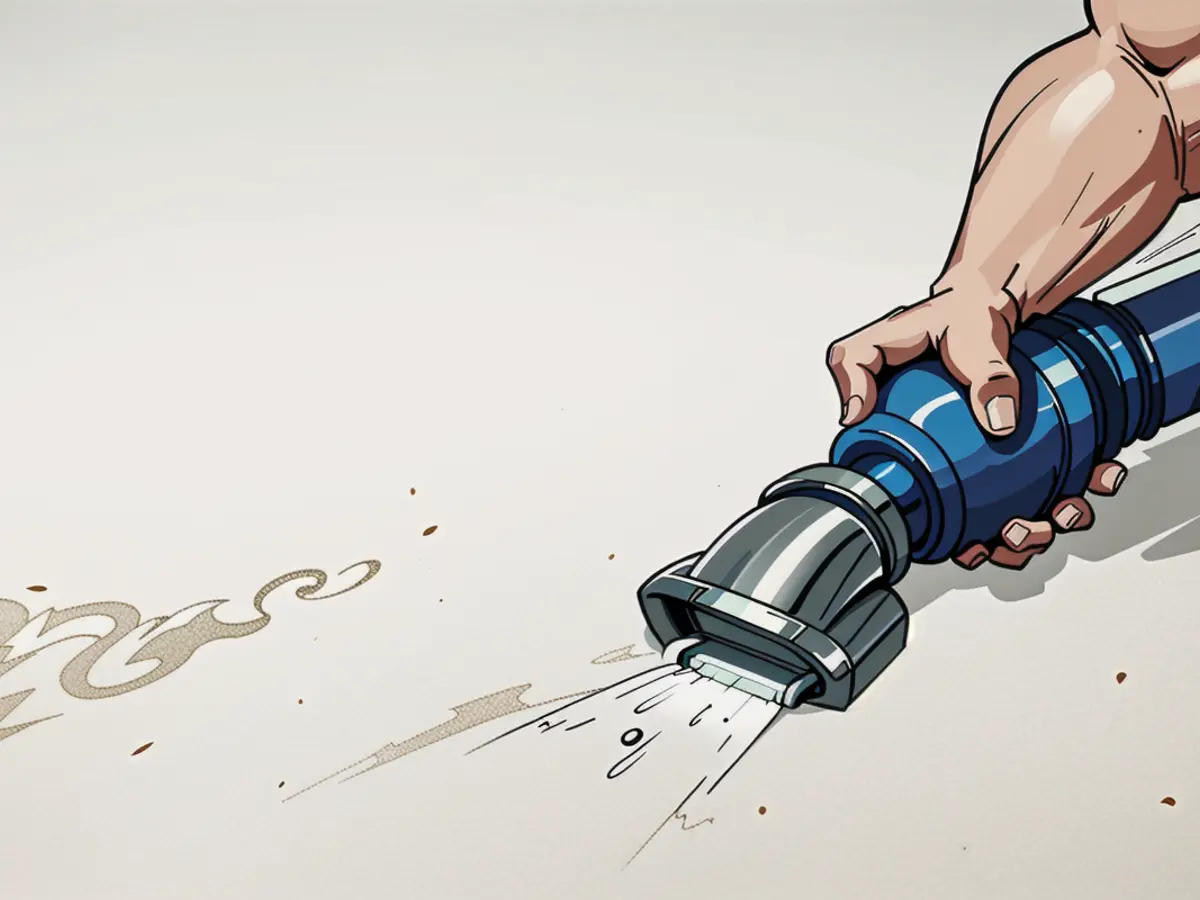Easily Sanitize Various Kitchen Countertop Materials without Utilizing Strong Chemicals
While it's convenient to clean your countertops with any multipurpose cleaner you have handy at home, it might dull or even damage them in the process. Interestingly, the safest and most effective way to clean most countertops is using supplies you likely already have in your kitchen. Embrace these recommended cleaners for each specific surface type. From quartz to marble, butcher block, laminate, to concrete, and stainless steel, this guide will provide you with the best cleaning techniques for each surface.
Marble, Quartz, and Granite Countertops
Go for simplicity by adding hot water and a splash of dish soap in a spray bottle. Spray the countertop and wipe it down with a damp microfiber cloth. For thoroughness, dry with another clean microfiber cloth.
To preserve the gloss of granite, simply spritz the surface with a 50/50 solution of isopropyl alcohol and water, wipe it with a damp cloth, and then dry. If your countertops are well-sealed, you may even use a bleach-free disinfecting wipe for added protection without causing damage.
Maintaining marble and quartz can pose certain challenges. Marble's porous nature requires extra care, as it may stain if a spill isn't cleaned up promptly. Quartz also stains, especially if it comes into contact with heat, so opt for a trivet whenever necessary. Avoid acidic cleaners like lemon juice, vinegar, and bleach on these surfaces, as they may create etching and dull the finish over time.
Butcher Block Countertops
Clean butcher block with hot water and dish soap, and scrub with a dish sponge or a scrub brush with plastic bristles. Wipe the surface clean with another damp cloth and thoroughly dry. For problems like stubborn messes, combine baking soda with a little hot water to create a paste. This slightly abrasive paste will assist in scrubbing away annoying stains. For added disinfection, spray the area with white vinegar and let it sit for a minute before wiping clean with a fresh damp cloth, and finally drying thoroughly.
Butcher block is susceptible to staining, but with proper care using a water-based polyurethane sealant, it works quite well and holds up for a long time. Keep in mind that it's not recommended to use as a cutting board or let water sit on it for extended periods.
Laminate Countertops
Cleaning laminate is straightforward, as you can easily use hot water, dishwashing liquid, and a microfiber cloth to clean the surface. Rinse with a damp microfiber cloth and then dry. If you encounter a stain, contact your manufacturer for specialized cleaning instructions and suggestions.
Avoid abrasive tools, such as steel wool, and steer clear of bleach, which may discolor the surface, on laminate countertops. Be sure to maintain a safe distance between water and the seams to prevent warping or swelling of the substrate underneath the laminate.
Laminate countertops are economically viable, boasting an impressive resemblance to natural stone at a reduced cost. They are also strong and durable, promising a long lifespan when cared for correctly. Shop for a high-quality variation from a trusted manufacturer, which will still be more budget-friendly than most genuine stone alternatives.
Concrete Countertops
For day-to-day cleaning, clear away stuck-on spills or residue with hot water, dish soap, and a dish sponge. Rinse off the remains with hot water and a microfiber cloth before drying completely. If you wish to disinfect a sealed concrete countertop, blend 1/4 cup rubbing alcohol with 2 cups of water in a spray bottle. Spritz, let it sit for 5 minutes, and then wipe clean with a damp cloth, thoroughly drying afterward.
Concrete's sturdy and resilient nature makes it virtually impervious to stains with annual sealing. Plus, it's heat-resistant and even suitable for DIY enthusiasts looking to craft their concrete countertops.
Stainless Steel Countertops
Address everyday mishaps with warm water, dish soap, and a microfiber cloth. Scrubbing with a plastic-bristled brush or other non-abrasive tool and some baking soda will help remove tougher stains before rinsing and buffing dry.
Stainless steel surfaces are particularly notorious for collecting fingerprints and smudges. To prevent this, simply apply a bit of olive oil on a paper towel, and treat the stainless steel surface for long-lasting protection.
Efficient and functional, stainless steel countertops bring a professional touch to any kitchen. The material's flexibility allows it to withstand daily use without succumbing to faults or unsightly marks.
After learning about the best cleaning techniques for different countertop materials from RealSimple, remember to use dish soap and hot water for cleaning butcher block, laminate, and marble or quartz countertops. For granite, use a 50/50 solution of isopropyl alcohol and water. Avoid acidic cleaners like lemon juice, vinegar, and bleach on marble and quartz as they may damage the surfaces.
In the guide, you'll discover that butcher block can benefit from a mixture of baking soda and hot water for stubborn stains, while laminate countertops require avoidance of bleach and abrasive tools to maintain their appearance. Concrete countertops are durable and less prone to stains with annual sealing, and various cleaning methods are suggested based on the material's specific needs.




